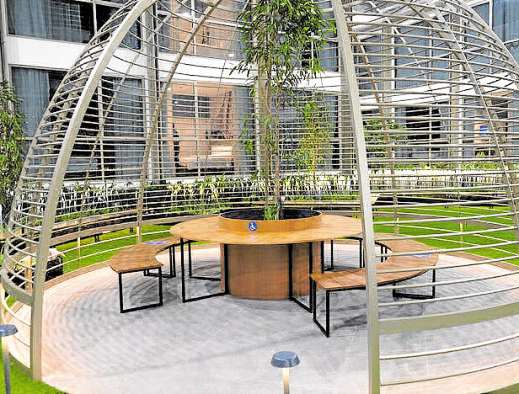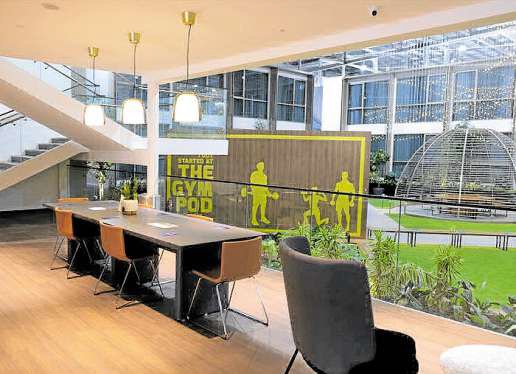What the hospitality industry could learn from the world’s first ‘bubble’ hotel
The unprecedented COVID-19 had almost shut down the world’s economy overnight. As strategies to flatten the curve such as travel restrictions, stay-at-home orders, social distancing and community lockdowns became the norm, these unfortunately took a toll on most hospitality businesses.
At the height of the pandemic, restaurants were ordered to limit their operations to take-outs, while travel restrictions and stay-at-home orders caused a sharp decline in hotel occupancies.
Thankfully, it’s only a matter of time before we see a recovery. Countries like Singapore, for instance, are becoming a global reference point in terms of rebuilding national resilience, with local and international business activities here starting to return in a safer and more calibrated manner.
Singapore’s response
Strategically located a short drive away from the Changi Airport, the “bubble” business hotel features dozens of conference rooms equipped with separate air ducts for guests and visitors. This hotel is scheduled to start operations this month, with an initial capacity of 150 guests inside the 40 meeting rooms. In the future, however, the hotel plans to expand its capacity to 660 guest rooms and 170 meeting rooms.
Per night, prices run from $390 for an executive guest room to $430 for a premier guest room. Inclusions are three daily meals, swab tests and transport to and from Changi Airport.
However, in an industry requiring the constant need for human inclusivity, community and interaction, how can we integrate an opposing theme of heightened hygiene and physical distancing? The answer lies in innovative sanitation measures.

Singapore’s strictly enforced restrictions and tight quarantine protocols eventually made the numbers under its control —HTTPS://I.INSIDER.COM
Efficient, innovative approach to sanitation
It should be noted that Singapore’s strictly enforced restrictions and tight quarantine protocols allowed it to keep the number of COVID-19 cases under control. Having such stringent health and safety standards would be critical for the world’s first “bubble” business hotel, which offers face-to-face interactions at a time of social detox. Before entry, guests are required to undergo five swab tests: first, in their departing country; second, upon arrival, and; third, three swab tests throughout their two-week quarantine.
Air cleanliness and filtering are prioritized. The “bubble” business hotel hops on the popularity of UV sanitation systems by having a special compartment where guests can safely exchange documents and other physical goods. This special compartment is then equipped with UV light to sanitize these documents beforehand.
Planning as a tool for altering user behavior
The “bubble” business hotel, despite its innovative feat, actually follows the basics of COVID-19 precautions. This time, however, this facility is anchored on a “test-stay-work-meet” tagline, adding a pandemic-sensitive function to your typical hotel.
Inside, it includes basic hotel features such as a reception area, conference rooms, guest rooms and self-service cafés. The catch is, this hotel takes a calculated approach to physical distancing by providing floor-to-ceiling airtight glass panels, separating guests from the locals during on-site meetings.
To minimize any kind of physical contact whether with guests or with frequently touched surfaces, the hotel included self-service meeting rooms, meal drop-offs, as well as shelves outside each guest room. It also promotes safe social interactions by allowing guests to come in groups of five but prohibiting physical contact from other groups.
Further continuing its role as a “living laboratory,” the hotel also plans to test wastewater for COVID-19 and host regular contact tracing directly inside the establishment.
Toward a pandemic-sensitive architecture
Although the hospitality industry is slowly recovering from the onslaught of COVID-19, the pandemic’s impact on the present and future of how hospitality businesses operate are eminent. This suggests that adapting to the so-called “new normal” in anticipation of possibly similar events in the future requires long-term solutions, and what says long-term more than translating people’s sense of health and security into physical establishments, such as the likes of Singapore’s “bubble” business hotel.Sources:
Tandfonline.com, Businessinsider.com/singapore-bring-business-travelers-back-with-a-bubble-hotel-2021, Dailysabah.com/business/singapore-to-open-bubble-business-hotel-for-execs-in-quarantine/news. News.abs-cbn.com/life/03/09/21/singapore-bubble-business-hotel-welcomes-first-guests, Hospitalityinsights.ehl.edu/covid-19-design-changes-hospitality-spaces
The author is principal architect of Fulgar Architects (Fulgararchitects.com) helping property owners get into unique planning and design specialties for real estate, hotels, condominiums, museums, commercial and mixed-use township developments with a pursuit for the future Philippine architecture.


